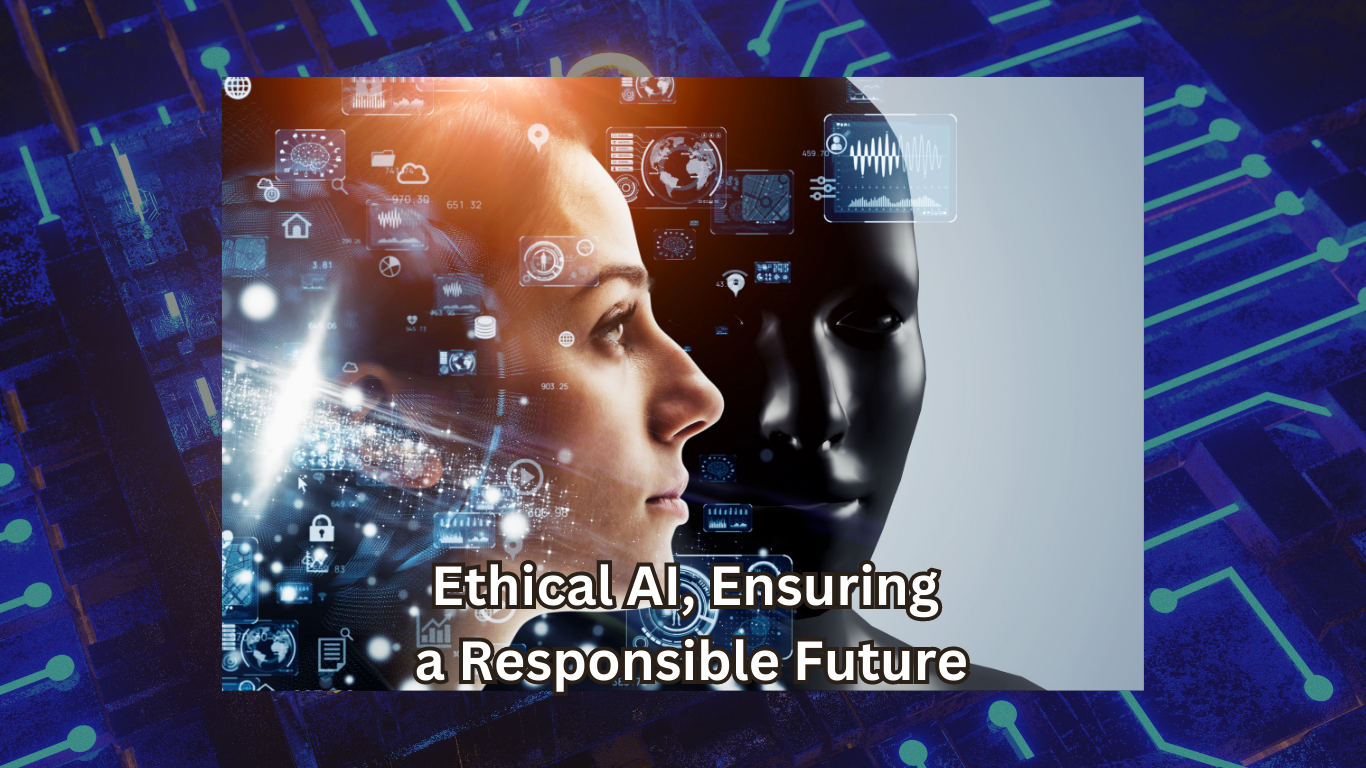Introduction
In this article, we delve into the fascinating world of Ethical AI and its importance in shaping a responsible future. As a proficient SEO and high-end copywriter, we aim to provide you with comprehensive insights that will not only outrank existing articles but also leave you well-informed about this critical subject. Our goal is to create content so exceptional in English that it becomes the definitive resource on Ethical AI. Let’s embark on this enlightening journey together.
Understanding Ethical AI
Artificial Intelligence (AI) has seen exponential growth in recent years, revolutionizing various industries with its unprecedented capabilities. However, with great power comes great responsibility. Ethical AI refers to the ethical considerations, principles, and guidelines that govern the development and deployment of AI systems. It aims to ensure that AI is designed and used in a manner that aligns with human values, respects privacy, and upholds fairness.
The Importance of Ethical AI
As AI permeates every aspect of our lives, it is crucial to address potential risks and challenges that may arise. Ethical AI fosters trust among users and stakeholders, mitigates biases, and protects against the misuse of AI technology. By prioritizing ethical practices, we can create a future where AI acts as a force for good, advancing society while respecting individual rights.
Key Principles of Ethical AI
1. Transparency and Explainability
Transparency is a foundational principle of Ethical AI. Developers must ensure that AI systems’ decision-making processes are clear and understandable to users. By providing explanations for AI-generated outcomes, we can build trust and reduce uncertainty, enhancing user confidence in AI applications.
2. Fairness and Bias Mitigation
AI algorithms must be designed to be fair and unbiased, avoiding discrimination based on race, gender, ethnicity, or other sensitive attributes. Careful examination of training data and constant monitoring are essential to address potential biases and ensure equitable outcomes for all.
3. Privacy and Data Protection
Respecting user privacy is paramount in the age of AI. Ethical AI demands the responsible handling of data, ensuring that user information remains secure and confidential. Implementing robust data protection measures safeguards against unauthorized access and data breaches.
4. Accountability and Governance
Incorporating accountability mechanisms into AI development is crucial. Stakeholders must be held responsible for the impact of their AI systems on society. Implementing clear governance structures ensures that AI adheres to ethical guidelines throughout its lifecycle.
Applications of Ethical AI
Ethical AI finds application across various industries, each contributing to a responsible and sustainable future.
1. Healthcare
In the medical field, AI can aid in early disease diagnosis, treatment recommendations, and drug discovery. Ethical AI ensures that patient data is protected, diagnoses are accurate, and medical decisions are transparent, ultimately improving healthcare outcomes.
2. Autonomous Vehicles
Self-driving cars are on the horizon, promising safer roads and reduced accidents. Ethical AI guarantees that these vehicles prioritize human safety, follow traffic rules, and are not susceptible to hacking, making transportation safer and more reliable.
3. Finance
AI-powered algorithms have transformed the financial sector, making processes more efficient and informed. Ethical AI in finance protects against biased lending practices, fraud detection errors, and ensures fair treatment of customers.
4. Education
AI in education enhances personalized learning experiences, identifying students’ strengths and weaknesses. Ethical AI emphasizes data privacy, preventing the misuse of student data, and promoting inclusive educational opportunities.
Challenges and Future Outlook
While Ethical AI offers tremendous benefits, it faces certain challenges that need addressing.
1. Ethical Dilemmas
AI often encounters ethical dilemmas where decisions might not be straightforward. Striking a balance between different ethical considerations requires thoughtful analysis and constant vigilance.
2. Global Standardization
As AI technologies transcend geographical boundaries, achieving global consensus on ethical standards becomes vital. International cooperation is crucial in establishing ethical guidelines that apply universally.
3. Rapid Technological Advancements
The rapid evolution of AI technologies necessitates continuous updates to ethical frameworks. Staying ahead of potential ethical issues demands agility and foresight.
Conclusion
In conclusion, Ethical AI is the cornerstone of building a responsible and sustainable future. By adhering to principles such as transparency, fairness, privacy, and accountability, we can harness AI’s potential for the betterment of humanity. As AI continues to revolutionize our world, we must remain committed to upholding ethical standards and ensure that it serves as a force for good. Together, we can shape a future where AI-driven progress is driven by compassion and responsibility.

[…] efficient, connected, and sustainable. As we embrace the power of artificial intelligence, we must ensure responsible AI development and utilization to create a future that benefits all of […]